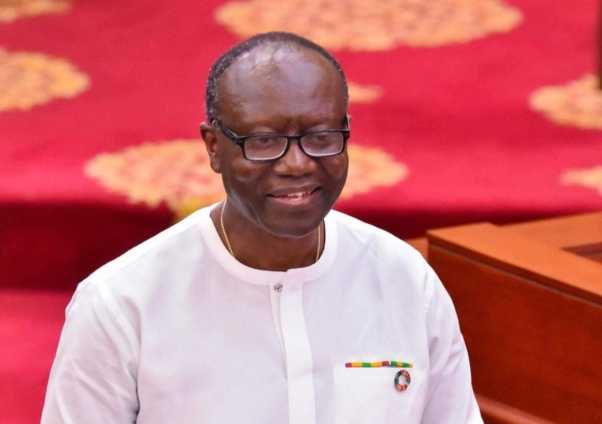Minister of Finance, Ken Ofori-Atta designate says Ghanaians should embrace the call to share the financial burden of the state.
Speaking at the Appointment' Committee vetting, he said that burden-sharing will not only help transform the country but also ensure the country also shares the opportunities that come afterwards.
“The essence of the budget is that it is a battle cry for us to join together to look at growth and transformation as opposed to bending our heads down because of covid. is there a good time ever for taxes, I am not sure anybody will ever say that.”
Mr Ofori-Atta said that the government will ensure that the revenue raised is used to productively towards growth across the country.
His comments come after many people expressed concern about the introduction of new taxes amid the Covid-19 pandemic.
While delivering the 2021 budget statement, Osei Kyei-Mensah-Bonsu announced the government is also introducing a Covid-19 Health Levy of 1% on VAT, Flat Rate Scheme (VFRS) and a 1% on National Health Insurance Levy (NHIL) as part of revenue measures to help the economy recover.
Government also introduced a Sanitation and Pollution Levy to help address the issues of sanitation in the country.
The Sanitation and Pollution Levy of 10 pesewas will be incorporated into the proposed fuel levy.
This new rate will be charged on the price per litre of petrol/diesel under the Energy Sector Levies Act (ESLA).
There will also be an increase in the energy sector recovery levy and road tolls.
Some Ghanaians including Buisila South MP, Dr Clement Apaak, condemned the introduction of new taxes by government in the 2021 Budget Statement.
He said because of the Covid-19 pandemic it is unfair for the government to put additional strain on citizens when production is low and personal income has dwindled.
However, Mr Ofori-Atta believes the country needs to address its many challenges adding that this revenue will help secure the growth of the country after suffering because of the pandemic.
“We have proposed a number of taxes that would affect petroleum which will lead to revenue for a delta fund for energy for capacity charges because we continue to have a gap between what ECG should be paying and what the rates are. So that was to make sure that we get the energy sector operations. We also have a huge sanitation problem that you all know about and I think that is a health hazard for the years ahead.”
He stated that the government prior to Covid-19 built a resilient economy, which was unfortunately affected by Covid-19, but now, “We need to create a society that we can also share the opportunities as we grow,” he added.
Latest Stories
-
DAMC, Free Food Company, to distribute 10,000 packs of food to street kids
1 hour -
Kwame Boafo Akuffo: Court ruling on re-collation flawed
1 hour -
Samuel Yaw Adusei: The strategist behind NDC’s electoral security in Ashanti region
2 hours -
I’m confident posterity will judge my performance well – Akufo-Addo
2 hours -
Syria’s minorities seek security as country charts new future
2 hours -
Prof. Nana Aba Appiah Amfo re-appointed as Vice-Chancellor of the University of Ghana
3 hours -
German police probe market attack security and warnings
3 hours -
Grief and anger in Magdeburg after Christmas market attack
3 hours -
Baltasar Coin becomes first Ghanaian meme coin to hit DEX Screener at $100K market cap
3 hours -
EC blames re-collation of disputed results on widespread lawlessness by party supporters
4 hours -
Top 20 Ghanaian songs released in 2024
4 hours -
Beating Messi’s Inter Miami to MLS Cup feels amazing – Joseph Paintsil
4 hours -
NDC administration will reverse all ‘last-minute’ gov’t employee promotions – Asiedu Nketiah
4 hours -
Kudus sights ‘authority and kingship’ for elephant stool celebration
4 hours -
We’ll embrace cutting-edge technologies to address emerging healthcare needs – Prof. Antwi-Kusi
5 hours

